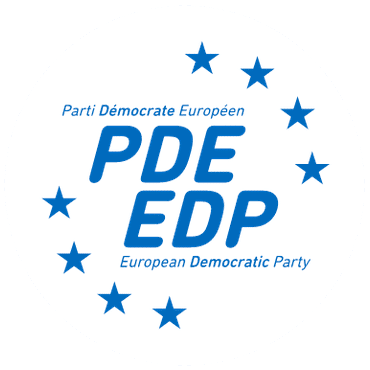
FUNDING COMMON PUBLIC GOODS
The European Union must act more quickly and more effectively

European Democratic Party
It’s time to talk about funding. A central question looms: how can we provide the European Union with new own resources to support our collective ambitions?
Although in November 2022 the Parliament gave the green light to the Commission’s proposal to introduce a first set of three new own resources (an expanded Emissions Trading Scheme, a Carbon Border Adjustment Mechanism and a share of the reallocated profits of very large multinational companies*), we are looking further ahead.
We are convinced that, in order to revitalise the European economy, it is essential to strengthen direct funding while reducing its dependence on national contributions or taxes levied on citizens. Indeed, citizens must not be taxed by Europe. Instead, large polluting companies and digital giants take advantage of the single market while externalising their activities, which must be held accountable to achieve these objectives.
This approach will allow us to fund new infrastructure, research projects, and the green and digital transitions without excessively burdening any Member State.
The significance of this approach lies in the fact that no Member State can raise funds in isolation. In the face of the challenges that lie ahead, it is not a simple transfer of resources from one country to another that must be imagined, but rather a collective response from the Union. We want to act at the European level, where individual states cannot do so effectively. This is what we mean by subsidiarity.
These new resources will be specifically allocated to projects where the pooling of resources makes the most sense. Our priority will therefore be to support artificial intelligence, invest in tomorrow’s economy (especially in the digitisation of industry) and support research into renewable energy and future technologies.
(*) Resources are generated from contributions from the Emissions Trading System (ETS), the Carbon Border Adjustment Mechanism (CBAM), and a share of the residual profits of large multinational companies.

Priority Actions
OWN RESOURCES
- Develop corporate taxation to align corporate tax bases within the EU.
- Introduce taxation of crypto-currencies, a poorly regulated sector that exploits the different tax regimes applicable between Member States.
- Adopt a tax on digital giants so that all players pay their fair share, as they are taxed at half the rate of traditional European companies.
- Ensure that large multinational companies contribute proportionately to their footprint, particularly those with a significant environmental impact.
- Ensure that these new resources are generated in a fair and transparent manner.
RELAUNCH
- Support new infrastructure and research projects, create jobs, and strengthen global competitiveness.
GREEN, DIGITAL AND KNOWLEDGE TRANSITION
- Allocate a significant share of new own resources to projects related to renewable energies, research on the technologies of the future and the digitisation of industry, culture and Erasmus.
COMPETITIVENESS
- Ensure that the European Union is not placed at a competitive disadvantage.
- Encourage the participation of citizens in the definition of projects financed by these resources, thus guaranteeing a democratic and transparent approach.
UNION OF VALUES
- Strengthen the European Union’s ability to finance civil society or local authorities directly when adopting financial sanctions for breaches of the rule of law against a European Union government by promoting smart budgetary cross-compliance and giving the European Union the possibility of providing financing, as proposed by Renew Europe.
